
The Metapolitics of Bioshock Infinite
Bioshock Infinite is a first-person shooter video game created by American video game developer Irrational Games in 2013. It is a heavily story-based game about fictional events at the beginning of the 20th century, but it is still grounded within our real-life universe. The game is ripe with narrative themes, primarily surrounding white supremacy, fascism, religious zealotry, and American exceptionalism.
This article seeks to explore these themes in the world of Bioshock Infinite and analyze them from a metapolitical perspective. This analysis will also identify where the game developers drew inspiration from the real world while also discussing how these themes play a role in present-day political discourse. Finally, we will identify and analyze the game's main antagonist and dissect their ideology and message.
The politics of games
Computer games have been a source of joy and entertainment since their inception in the 1950s. Videogames have grown significantly since then not just in technological complexity but also from simplified forms like digital tic-tac-toe to immersive worlds. These worlds host their own sub-cultures, social groups, and rich lore, such as the popular Massive Multiplayer Online Roleplaying Game (MMORPG), World of Warcraft.
The emergence of the computer game as a form of media has given artists the opportunity to pour out their ideas and perspectives on the world in much the same way that avant-garde artists like Charlie Chaplin infused their political views into the budding film industry. Videogame creative directors are infusing their ideologies into their games and in turn maturing the genre as a respectable form of media (Alderman, 2021).
Politics has been present in the world of video games since the 1980s with the release of the now popular franchise Castle Wolfenstein. The game was set during World War 2 and featured an allied protagonist navigating a maze, eliminating Nazi Stormtroopers, and eventually assassinating Adolf Hitler. New iterations of the game feature a more in-depth perspective on the narrative and a more dynamic world compared to its 2D predecessors. It features a more fleshed out approach to fascist ideology and in turn has had real world repercussions - the game was banned in Germany because of its Nazi symbols. The ban has since been lifted (BBC, 2018).
The Bioshock series by Ken Levine features three games deeply rooted in political and philosophical narratives, tackling themes like objectivism, altruism, and racism. Bioshock games are universally known in the gaming world for tackling societal "-isms." This paper will focus primarily on the third game in the series, Bioshock Infinite.
Bioshock Infinite's plot
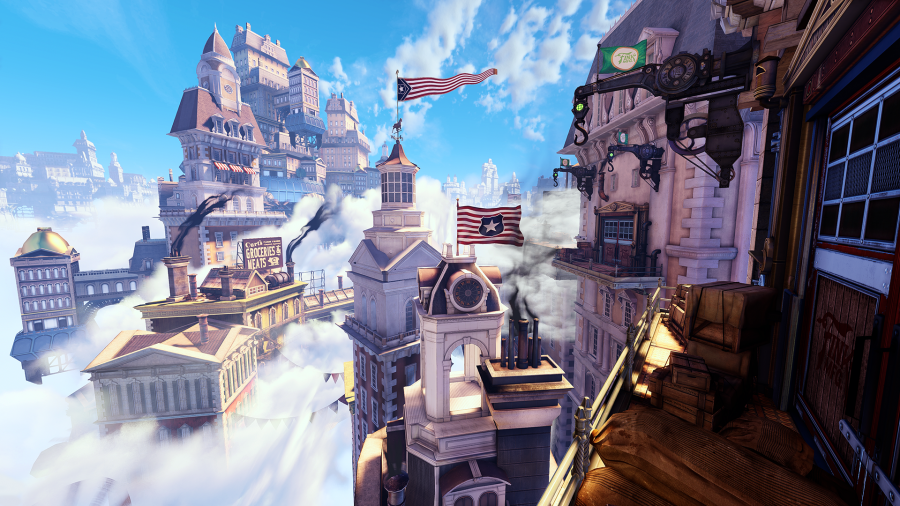
Figure 1 : The city of Columbia floats within the clouds with the help of a fictional technology called 'Quantum Levitation'
Bioshock Infinite takes place in 1912 off the coast of Maine in the United States. The protagonist, Booker DeWitt, is charged with finding a mysterious girl. This mission takes him to the levitating city-state of Columbia, a seceded state of the United States of America, built on a contorted version of Christianity and led by the religious figure Zachary Comstock, also called the ‘Prophet’.
Entrance into the city can only be achieved through a baptism that rebirths individuals from the "Sodom" below. The objective of the game is to defeat Comstock. Comstock’s defeat can only be achieved through attacking Columbia’s racist and exploitative values. The protagonist must lead an uprising of the working class, dismantle the racist system that controls Columbia, and stage a revolt against their oppressors.
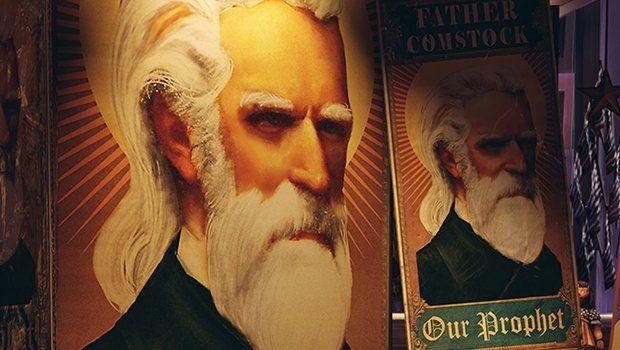
Figure 2 : Posters of Zachary Hale Comestock are visible all around Columbia
Comstock's ideology and messaging
The primary antagonist, Zachary Hale Comstock, is leader of a political party called The Founders, who govern the seceded state of Columbia and whose ideals mirror those of the U.S. founding fathers. The Founders promote religious zealotry, ultra-nationalism, militarism, and white supremacy, with Comstock as their divine leader. Their overarching goal is to one day wage war on the United States or the "Sodom Below."
Comstock rules over a warped version of Christianity centered around himself. He adapts the personas of Jesus, Moses and Noah from the bible and adds their likeness to himself. He is THE prophet, the messiah and the one that will guide the devout to a new Eden, Columbia.
“The Lord forgives everything. But I'm just a prophet… so I don't have to. Amen.”
― Father Comstock
Simply put, ideologies are socially structured ideas guiding behavior and thought in any domain. These ideas are socially constructed but also individually held. In the Bioshock Universe, much like ours, race as a societal construct plays an overpowering role. Comstock, as the divine leader of Columbia, voices his opinions in decrees to the people through recordings. His ideology on race is that Abraham Lincoln was mistaken in offering slaves emancipation. He instead argues that African Americans were comfortable as slaves and were taken care of by their owners and that freedom has done the black man no good.
The recording reads...
“What exactly was the “Great Emancipator” emancipating the Negro from? From his daily bread. From the nobility of honest work. From wealthy patrons who sponsored them from cradle to grave. From clothing and shelter. And what have they done with their freedom? Why, go to Finkton, and you shall find out. No animal is born free, except the white man. And it is our burden to care for the rest of creation.”
Finkton is an impoverished district in Bioshock where the ‘free’ working class members of society, primarily Blacks, Asian, and Irish people, live. Comstock considers this place to be the hub of anarchism and other forms of degeneracy.
Political message is a politician's publicly presented character. This is how a politician communicates his or her values, and this often involves misdirection or omission of important issues. Comstock is no different. In his speech on the great emancipator, he purposefully skews the idea of what exactly the right to self-governance means by belittling African Americans and referring to the white man’s burden. Comstock knows his audience will listen to whatever he says and with this power he can decide what is seen as truth and what is fiction (Lempert & Silverstein, 2012).
Ideologies transcend simple ideas and have consequences and repercussions for those that hold them. Comstock as a character is aware of this and is in a position to create and modify ideologies at a whim (Maly, 2021). To exact control over the behavior of his subjects, Comstock injects symbols into the doctrine of The Founders, three tenets that all god-fearing law-abiding Columbians must live by: The Sword, The Key and The Scroll. Each tenet is championed by a specific founding father.
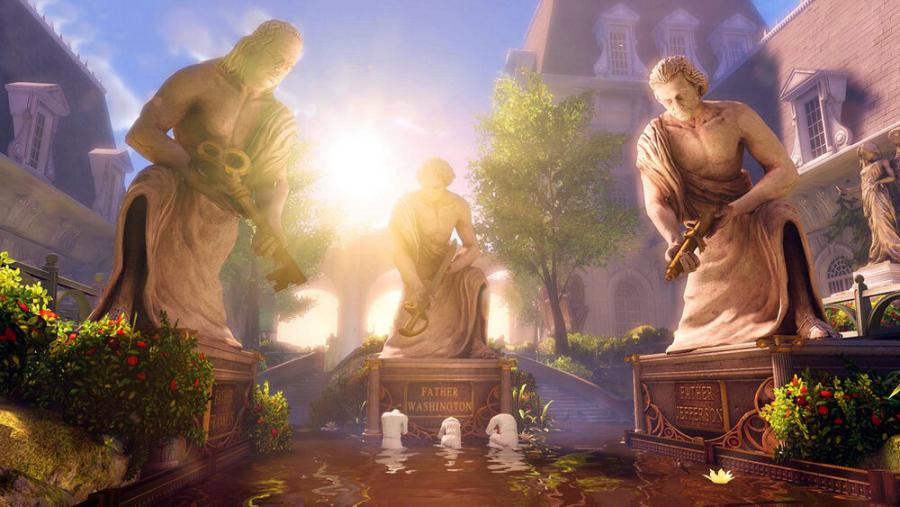
Figure 3 : The Three Tenets
George Washington holds the sword, which exemplifies strength, courage, and military prowess. Benjamin Franklin holds the Key, representing wisdom and intelligence. The Scroll is held by Thomas Jefferson, representing justice and moral guidance. These tenets are weaponized to push and maintain Comstock’s political ideology.
Within the game, The Founders are deeply enmeshed in the idea of meta-politics, or the primacy of culture over politics in the name of right-wing revolution and cultural hegemony. Comstock’s ideologies comfortably place him within the realms of fascism. He is the divine religious leader of a single party state where democracy is shunned in the face of hegemonic cultural beliefs. He ensures that democracy in Columbia is seen as evil, as it breaks down the emotional solidarity of the people and shatters them into factions (Sternhell, 2008).
“Comstock is the god of the white man, the rich man, the pitiless man. But if you believe in common folk, then join the Vox. If you believe in the righteous folk, then join the Vox.”
― Daisy Fitzroy
Comstock’s ideology can further be explained by Carl Schmitt, a political theorist and member of the Nazi party. Schmitt states that the best way to maintain a homogenous undemocratic society is with “the antithesis between friend and enemy.” He argues that constitutional arrangements do not ground political communities, but divisions between antagonist groups do (Cuddy, 2015).
Antagonist groups can be explained as people of specific races, classes, nationalities, or, most importantly, ideologies. Schmitt goes further to elaborate that the antagonist group must be “in a specifically intense way, existentially something different and alien, so that in the extreme cases conflicts with him are possible.” In essence, Schmitt believes that a society is in its most homogenized and stable state when it has a common enemy to unite against (Cuddy, 2015).
Comstock positions Columbian against a multitude of enemies to unite and homogenize white Columbians through the use of white supremacy, classism, secessionism, theocracy, and anti-democracy. In contrast, enemies of the Columbian state are different factions of non-white, secular, generally lower class, and democratic people (Elmore, 2015).
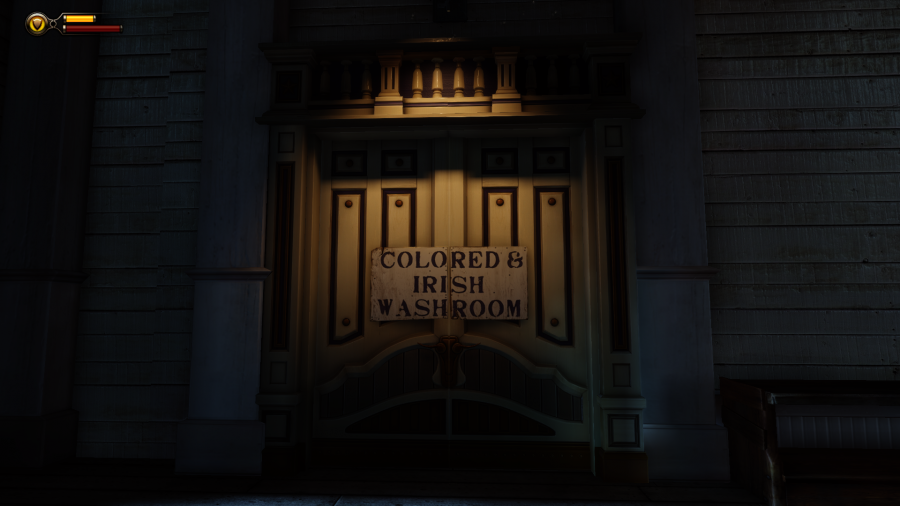
Figure 4: Columbia is heavily segregated with designated Irish and Colored washrooms
The Vox Populi
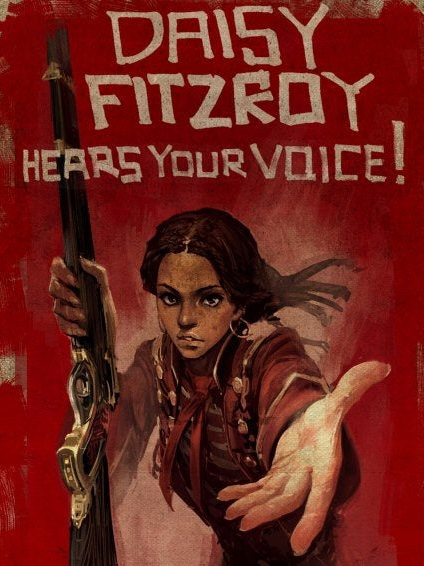
Figure 5: A propaganda poster of Daisy Fitzroy
The Vox Populi is the antagonist to The Founders and Comstock. Translating literally to the voice of the people, the very name Vox Populi is the antithesis of Comstock’s anti-democratic movement. This movement is lead by Daisy Fitzroy, an African American women brought to Columbia for menial labor. Daisy Fitzroy leads an underground resistance against The Founders, fighting for the oppressed people of Columbia. She is more than willing to do whatever it takes to topple The Founders, even if means harming innocents.
The narrative the game pushes through the Vox Populi is that political power inevitably leads to corruption. The Vox Populi eventually become the villains they set out to defeat, demonstrating that a society cannot and should not function on Carl Schmitt’s theories of solidifiying political community. Carl Schmitt's notion of politics pigeonholes group identity into friend and foe, which inevitably forces each side to extremes when a military upper hand is claimed. The Vox becoming an extremist group is a consequence of a friend and foe divide in a Schmittian political system.

Figure 6: White upper-class neighborhoods of Columbia are riddled with anti Vox Populi propaganda posters
Columbian racial purity and the real world
Columbia is fictional a city-state, but how does it overlap with our present-day reality? In this section, art from Columbia's environment will be analyzed and compared to real far-right movements, such as the Flemish group Schild en Vrienden.
The Fraternal Order of the Raven is a sub organization of The Founders, who are charged with maintaining Columbia’s racial purity. Their logo is an eye and five swords with a banner in Latin reading “Audemus Patria Nostra Defendere” or “We dare defend our homeland.” The motto is very similar to the state of Alabama's real-life motto, "Audemus jura nostra defendere", meaning "We dare defend our rights" (NETSTATE, 2021).
The Order is a direct play on present day rightwing groups who use similar slogans to depict a precious homeland or heritage in peril and in need of protection. Schild en Vrienden is a right wing youth movement whose Facebook videos have been titled things like “Protecting our Heritage.” Schild en Vrienden is bent on cultural hegemony and the maintenance of a Flemish identity that excludes non-whites (Maly, 2019).

Figure 7: Racial Purity is a priority for Columbia's security force.
The Fraternal Order of the Raven’s building glorifies Zachary Comstock with a monument depicting him slaying a three headed serpent. The serpent’s heads are caricatures of an African, an Asian, and a Jewish person. A plaque on the statue reads “COMSTOCK FIGHTS THE SERPENT OF NATIONS.”
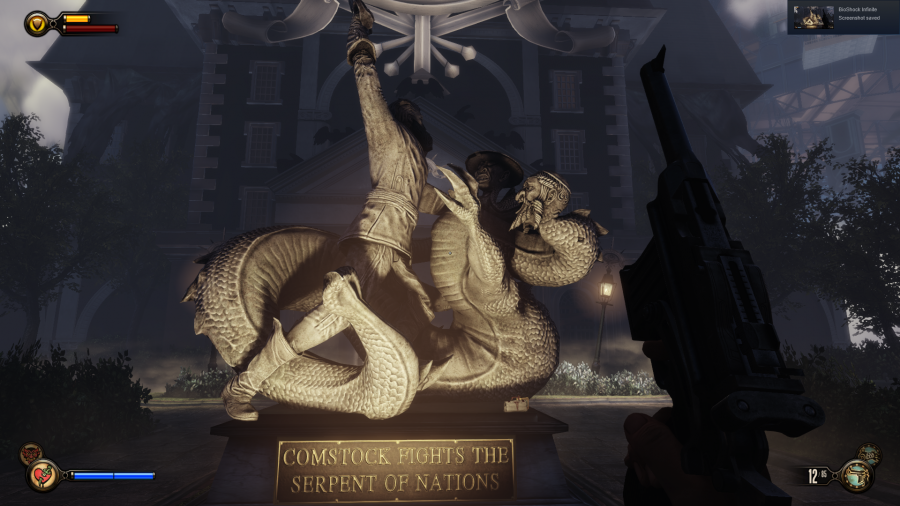
Figure 8: Comstock fights the serpent of nations. A three headed serpent of foreign invaders.
The Order also venerates John Wilkes Booth, the man who assassinated Abraham Lincoln, with a large statue and a painting depicting him with a saint’s halo and Lincoln with devils’ horns. This is a direct representation of Comstock’s ideology passed down unto Columbia’s citizens.
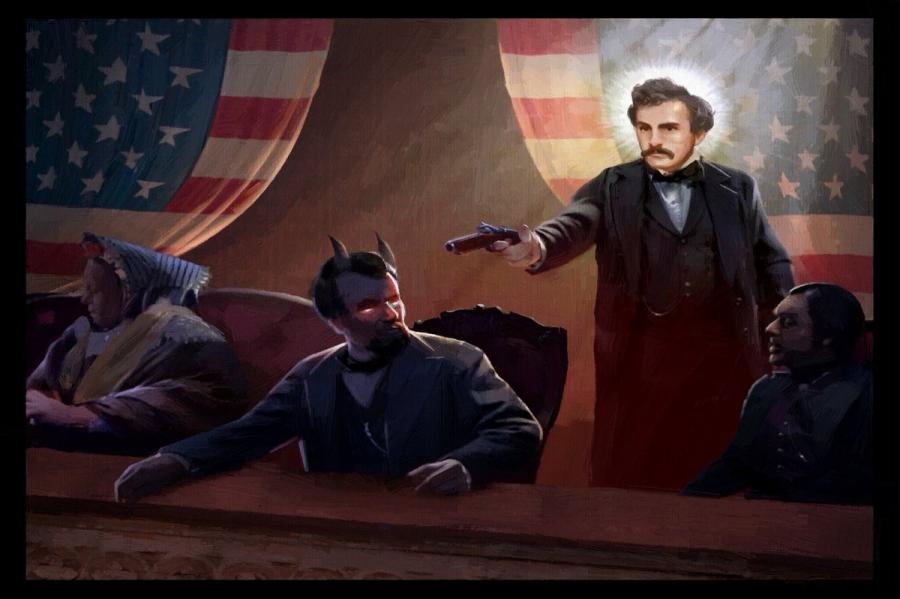
Figure 9: Art venerating John Wilks Booth is popular within the Order of the Raven
Paintings depicting Lincoln as the devil are popular within the Fraternal Order’s manor. Below he is depicted levitating like a wraith with devil horns and fiery eyes, leading a horde of torch wielding anarchists, while his counterpart, George Washington, is depicted as the 1872 painting American Progress by John Gast. His soldiers also bear confederate flags, signifying the maintenance of slavery in contrast to Lincoln's emancipation. This is a clear depiction of indoctrinating ideologies that translate to modern day right wing memes that vilify Barack Obama as a devil.
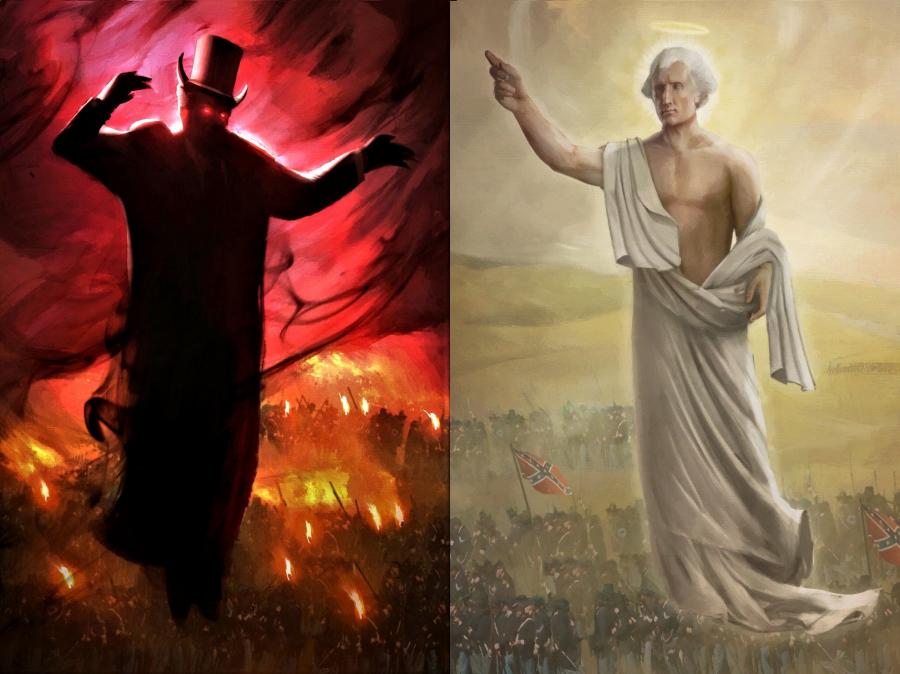
Figure 10: Art comparing Lincoln as a progressive force of evil to George Washington as an expansionist saint
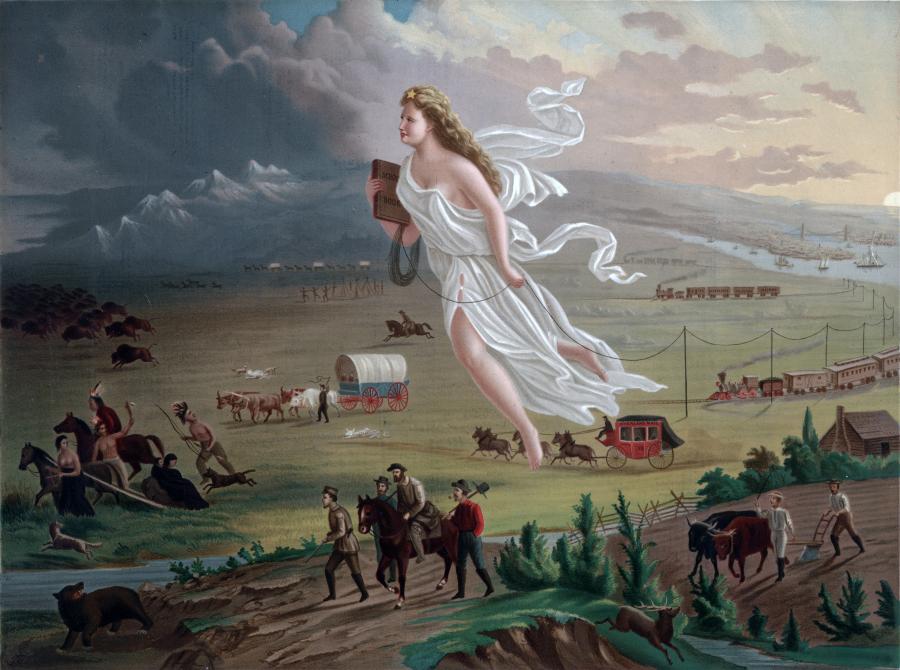
Figure 11: The inspiration behind George Washington's portrayal comes from the painting 'American Progress' by John Gast
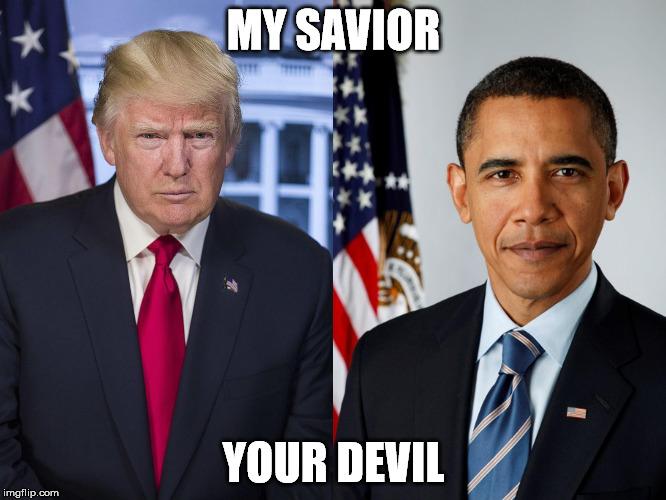
Figure 12: A meme liken to the painting of Lincoln and Washington
Furthermore, members of the Order wear blue hoods in an obvious allusion to the Klu Klux Klan.
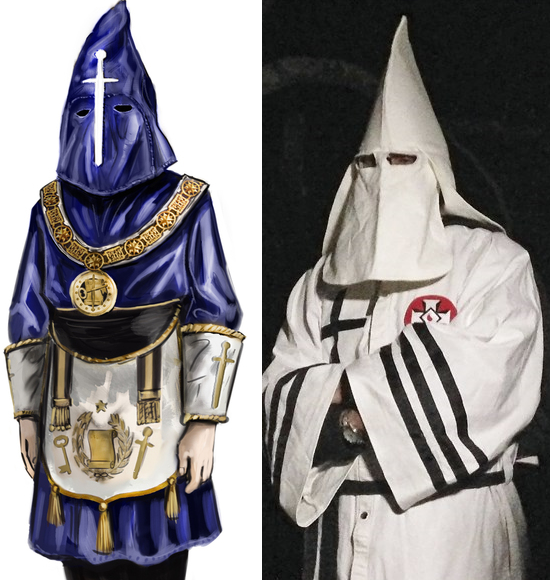
Figure 13: A comparison of the clothing worn by the Order of the Raven and the Ku Klux Klan
A giant mural on the main hall of the Fraternal Order of the Raven illustrates the Columbian perspective, which is not unlike that held by far-Right organizations like Pegida, Schild en Vrienden, The KKK, The Proud Boys and Trump supporters. It features George Washington holding the liberty bell, a symbol of American independence, and the 10 commandments in his other hand, with a statement that reads:
“It is our holy duty to guard against the foreign hordes”
Below him on each side are racist caricatures representing various ethnic groups pleading for deliverance. Above him is the angel Columbia, a personification of the United States holding up a banner that reads:
“For god and country”
On each side are symbols promoting defense, prosperity, faith and purity.
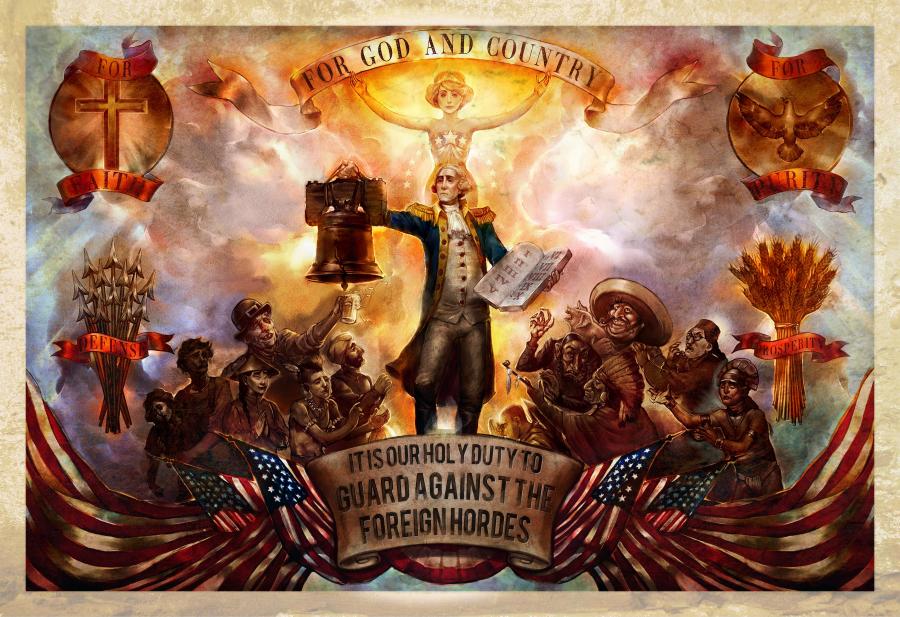
Figure 14: A mural depicting Washington holding the freedom bell with foreign hordes bowing towards him
This image was shared by the National Liberty Federation, a right wing group from Florida, on their Facebook page, unaware of its satirical origin. It was shared with an earnest intent to disparage non-white people, demonstrating that the narrative Bioshock portrays is easily translated to current day issues (Meyer, 2015).
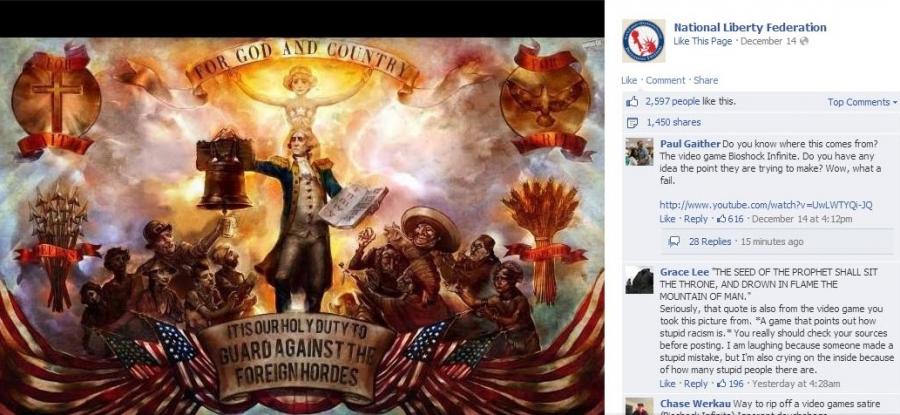
Figure 15: The National Liberty Federation used the image without knowing its true origins
Bioshock, racist ideology, and metapolitics
Bioshock Infinite is a game that ultimately satirizes present-day racial discourse and the rise of right wing organizations. The game accurately depicts how an authoritarian politician can create and weaponize an ideology with expert use of messaging.
Bioshock Infinite highlights how and why political systems built on antagonism are not a sustainable form of politics. It further sheds light on the proper ways to combat an oppressive system by highlighting the shortcomings of the Vox Populi. Far right ideology is uncomfortably brought to the forefront with the Fraternal Order of the Raven as it borrows traits from real life white-supremacy groups like the KKK. Lastly, Bioshock Infinite shows how a medium such as computer gaming can be a tool to illustrate political, racial and ideological problems.
References
Gast, J. Autry’s Collections Online – painting (1872). American Progress [painting]. Autry Museum of the American West, Los Angeles, California, U.S.A.
Cuddy, L. (2015). BioShock and philosophy: Irrational game, rational book. Wiley Blackwell.
BBC (2021, August 10). Germany lifts total ban on Nazi symbols in video games.
Lempert, M., & Silverstein, M. (2012). Creatures of politics. Indiana University Press.
Maly, I. (2019). New Right Metapolitics and the Algorithmic Activism of Schild & Vrienden. Social Media + Society, 5(2).
Meyer, R. (2013). Facebook Advice: Don't Mistake Anti-Racist Satire for Patriotism. The Atlantic.
NETSTATE, L. (2021). Alabama State Motto.
Sternhell, Z. (2008). How to think about fascism and its ideology. Constellations, 15(3), 288.
Alderman, N. (2016, February 15). Take video games seriously! Yes, they’re fun, but they matter culturally too. The Guardian.
The Founders (2021). in BioShock wiki.